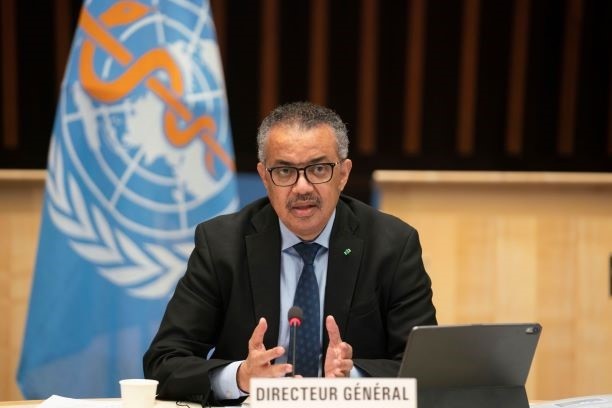
New COVID-19 wave: WHO chief concerned about rising cases, deaths

The World Health Organization’s (WHO) chief has warned countries over the new waves of COVID-19 and said the pandemic is “nowhere near over”.
According to the WHO, the cases of COVID-19 reported to it had increased by 30% in the last two weeks, largely driven by Omicron BA.4, BA.5 and other descendent lineages and the lifting of public health and social measures (PHSM). This increase in cases was translating into pressure on health systems in a number of WHO regions.
Also read: Centre announces free COVID booster shots for 18-59 age group
Europe is at the centre of a new wave of cases driven by the BA.4 and BA.5 omicron sub-variants as people attend large gatherings and resume traveling after two years of staying close to home. In England, an estimated 2.1 million people, or one in 25, tested positive in the final week of June, according to the Office for National Statistics. People can be infected even if they have had Covid previously, but vaccination does help to protect against serious illness, according to a Bloomberg report.
On Thursday (July 14), India reported 20,139 new COVID cases in the last 24 hours, according to the Ministry of Health and Family Welfare (MoHFW). India’s active caseload stands at 1,36,076.
“I am concerned that cases of COVID-19 continue to rise – putting further pressure on stretched health systems and health workers. I am also concerned about the increasing trend of deaths… New waves of the virus demonstrate again that Covid-19 is nowhere near over. As the virus pushes at us, we must push back,” WHO Director-General Tedros Adhanom Ghebreyesus said.
Also read: COVID: Gap between second and booster dose vaccine reduced to 6 months
“The virus is running freely and countries are not effectively managing the disease burden based on their capacity, in terms of both hospitalisation for acute cases and the expanding number of people with post-Covid condition, often referred to as Long Covid,” he added.
The WHO chief reiterated the need to use face masks to prevent the spread of the virus.
“We have safe and effective tools that prevent infections, hospitalisations and deaths. However, we should not take them for granted… As transmission and hospitalisations rise, governments must also deploy tried and tested measures like masking, improved ventilation and test and treat protocols,” he said.
Also read: Why must you take COVID booster dose? ICMR study has fresh inputs
Sub-variants of Omicron, like BA.4 and BA.5, continue to drive waves of cases, hospitalisation and death around the world, the WHO chief said.
Dr. Michael J. Ryan, Executive Director of the WHO Health Emergencies Programme, expressed concern regarding the current global COVID-19 epidemiological situation.
He highlighted additional challenges to the ongoing COVID response: recent changes in testing policies that hinder the detection of cases and the monitoring of virus evolution; inequities in access to testing, sequencing, vaccines and therapeutics, including new antivirals; waning of natural and vaccine-derived protection; and the global burden of post COVID condition.
The epidemiology of SARS-CoV-2 virus infection remains unpredictable as the virus continues to evolve, through sustained transmission in the human population and in domestic, farmed, and wild animals in which the virus was newly introduced, the WHO said.

